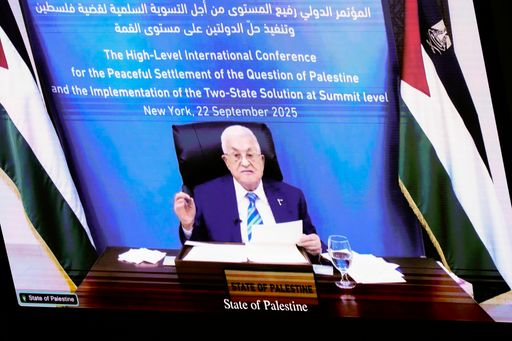United Nations — The barricades came first. Steel fencing snaking around Turtle Bay. NYPD cruisers blocking side streets. Sirens cutting through Manhattan's late September air.
Security grips the famed island like a fist as diplomats and motorcades slice through the city's grid, forcing pedestrians into detours.
The United Nations General Assembly pulse quickens.
Monday dawned with a flurry of symbolism and manoeuvre in NYC. The High-Level Week formally opened. More than 150 heads of state and government are expected to address the General Debate.
Motorcades threaded through closed streets, First Avenue shut between 42nd and 48th. Midtown traffic creeping at walking pace.
One of the world's most iconic cities braces for days of noise, rhetoric, and protest.
During the afternoon, a summit on Palestine co-led by France and Saudi Arabia convened. Dozens of countries gathered to endorse a two-state solution.
France formally recognised Palestine. Belgium, Luxembourg, Malta and Monaco followed suit.
French President Emmanuel Macron pressed for reforms, ceasefire, release of captives, offering this recognition as both a moral signal and a political lever.
Israel and the United States stayed away.
France's landmark decision
Macron set the tone, leading the UN summit that already spurred other Western governments to take the landmark step that has infuriated Israel.
In his remarks, UN Secretary-General Antonio Guterres said, "Let's be clear: Statehood for the Palestinians is a right, not a reward," drawing applause.
Turkish President Erdogan hailed the countries that recognised Palestine as "quite important" and "historic."
Meanwhile, Syria is re-emerging. Ahmed al-Sharaa, the new Syrian president, will make his debut address later in the week — the first Syrian head of state at the UN in decades.
As geopolitical issues took center stage at the UN, security was omnipresent.
Drone surveillance. Alert patrols. Motorcade routes mapped with military precision.
New York City is under alert, not just because of the global stakes, but because the city's veins are being pressed and tested.
Eight million citizens walking past checkpoints, stopping, waiting, and moving on.
Fractured world
The press corps, massed in the premises of the UN headquarters, chase every announcement.
As media gaggles cluster, diplomats retreat to hotel lobbies, think-tank panels, and embassy suites.
By dusk, the city glows under floodlights aimed at the UN, with projections of flags and the hum of helicopters overhead.
Monday was the overture. The war in besieged Gaza, the much-expected recognition of Palestine, and Türkiye's bold posture all of it converged.
And as night falls on Manhattan, the overture gives way to a question: can this week's diplomatic action bend the course of a fractured world?





















